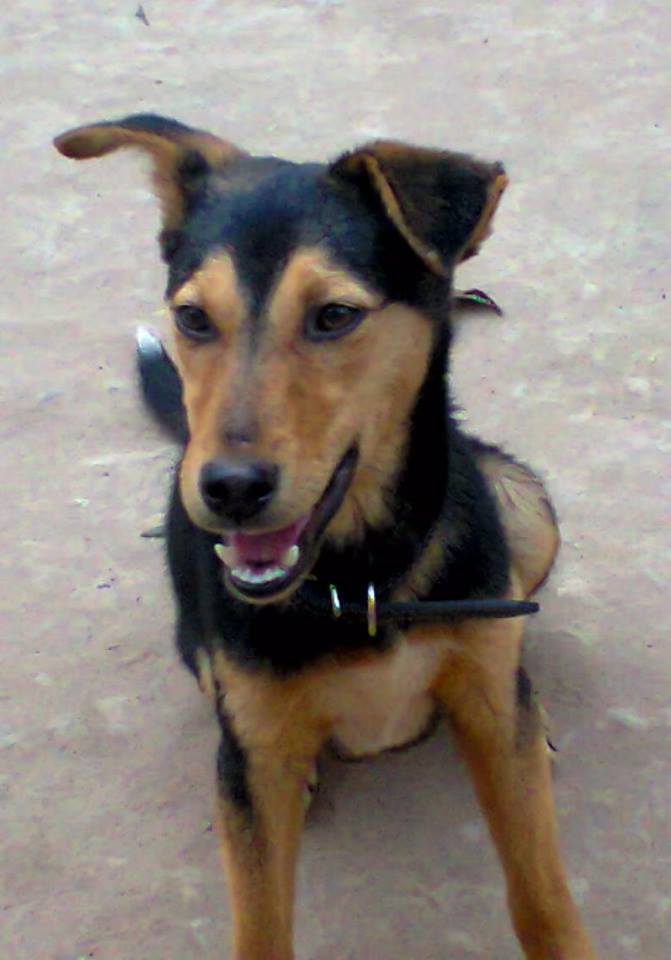My morning walks with Duke are only partly for the dog’s benefit; mostly, they’re a chance for me to clear my head before work. As Partnership Officers liaising between the Malawi Ministry of Health and the Office of the President and Cabinet, my co-fellow and I spend most of our time charting the gray areas of interpersonal and organizational relationships. It’s messy, qualitative work which is almost never done and certainly never done ‘right’ – which makes the calm and clarity of my morning walk all the more valuable.
On this particular morning we’d been out for less than a quarter-mile when two dogs rose slowly from the grass and started towards Duke. Not all of Lilongwe’s loose mutts are strays, and not all strays are dangerous, but almost every dog in the neighborhood has at least one tattered ear testifying to the fact that sometimes, they are.
I shouted them off, then shouted them off again. The larger dog backed away without hesitation, but the smaller of the two inched closer, eying me warily. It wasn’t until I raised my voice and took a threatening step forward that a nearby guard intervened: “Madam, it’s a nice dog. Very nice dog.” I looked at Duke – he didn’t seem nervous. I looked at Small Dog – he seemed small enough to drop-kick, if necessary. I glanced at the guard, who nodded, and I carefully let Duke off his leash.
For the next ten minutes Duke and Small Dog were a furry, frenzied ball of joy. It was the first time since his adoption that Duke had another dog to play with, and he was ecstatic. As I watched them, smiling, the second dog – bigger and fluffier than his friend, with sorry-looking brown eyes and a painfully swollen paw – limped haltingly towards me. His leg was ringed with puncture wounds, and it was clear he couldn’t put any weight on his foot. Left on the street, he’d be permanently crippled or dead within a few weeks.
In a sudden fit of resolve I interrupted Duke’s play, removed his collar and fastened it on Fluffy Dog.
The four of us started for home – Duke and Small Dog rolling ahead, and Fluffy Dog and I trailing behind. We had almost reached my street when an elderly Malawian man stopped us. He pointed at Fluffy Dog, then at me, then at himself, then back to Fluffy Dog, punctuating each gesture with rapid-fire Chichewa. Having no idea what he wanted, but feeling vaguely certain that he wanted me to stop whatever I was doing, I managed to convince him to follow us back to the compound, where our day guard could translate.
It only took a few sentences to establish that Fluffy Dog was not a stray; in fact, he lived at the house where the elderly man worked as a gardener. His leg had been injured a week earlier during an attack by some neighborhood dogs, but they were going to take him to the vet that day. Apologizing profusely for my well-intentioned kidnapping, I saw Small Dog, the gardener, and his injured pet to the gate.
By this time it was 7:00am, too late for Duke and me to finish our walk. As I headed inside to shower, though, it struck me that the whole morning had been very much like some of my experiences at work: I leave the house in the morning intending to do ABC, get about a quarter of the way through A, notice that someone should probably address XYZ, get about a quarter of the way through X, discover that I either shouldn’t or can’t intervene, go home and shower, and repeat.
It’s not always like that – sometimes I work slowly through ABC; sometimes XYZ really does need to be urgently addressed; sometimes, on a really good day, I burn through the entire alphabet.
Regardless of the outcome, however, deciding when to intervene is consistently the most difficult challenge I face at my current job. There are risks inherent in both options: Intervene too much or too often, and you risk overstepping your role or, at worst, causing unintentional damage. Intervene too little, and you risk the type of apathy-induced negative outcomes that stymie development.
There are days when my enthusiasm, naiveté, or need to be productive lead to a kind of moral mission-creep. There are also days when I refuse to look up from the task at hand, and try to pass off my cynicism as hard-won wisdom. As a generally well-balanced person, I tend to err equally in both directions.
The decision to step in – to put down A and pick up X – is often deeply personal. At the same time, however, the struggle over when, where and how to intervene is one of the most universal human conundrums at the heart of international development. When I have fully stocked emotional reserves, I can admit that it’s a gray area that will never be ‘done’, much less ‘done right’: Intervention-point dilemmas will likely confound me for the rest of my career. The rest of the time, I get up early and walk Duke.

